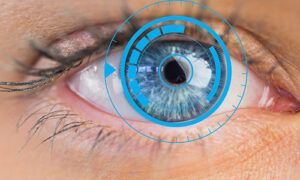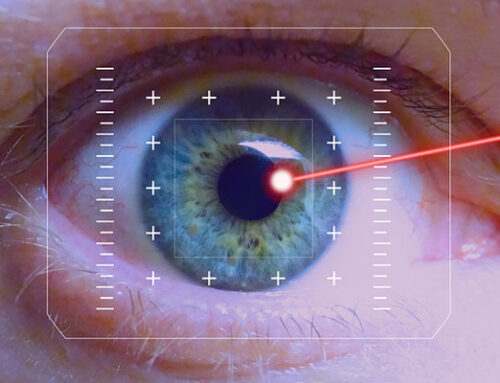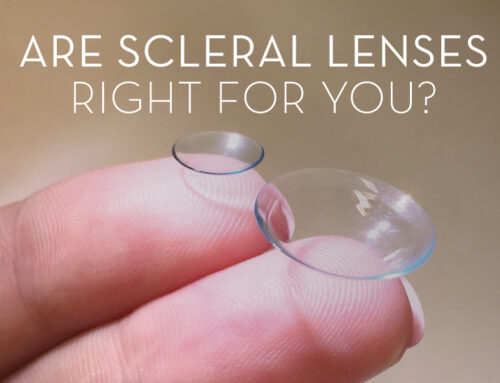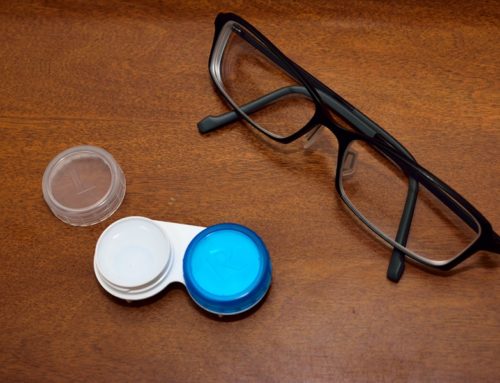Am I a Candidate for Contact Lenses?
 Contact lenses offer a convenient and comfortable alternative to eyeglasses for many individuals. They provide clear vision without the hassle of frames and can be a great option for those with an active lifestyle or specific visual needs. If you are considering contact lenses, you may be wondering if you are a suitable candidate. In this blog post, we will explore the factors that determine candidacy for contact lenses and help you determine if they are right for you.
Contact lenses offer a convenient and comfortable alternative to eyeglasses for many individuals. They provide clear vision without the hassle of frames and can be a great option for those with an active lifestyle or specific visual needs. If you are considering contact lenses, you may be wondering if you are a suitable candidate. In this blog post, we will explore the factors that determine candidacy for contact lenses and help you determine if they are right for you.
1. Vision Prescription
The first step in determining your candidacy for contact lenses is to have a comprehensive eye examination and vision prescription. Your eye care professional will assess your visual acuity, evaluate the health of your eyes, and determine the specific correction needed for your refractive error (such as nearsightedness, farsightedness, or astigmatism). In most cases, contact lenses can correct a wide range of refractive errors, making them suitable for many individuals.
2. Eye Health
The health of your eyes plays a crucial role in determining your eligibility for contact lenses. Your eye care professional will examine the overall health of your eyes, including the cornea, conjunctiva, and tear film. Certain eye conditions, such as chronic dry eye, severe allergies, or corneal irregularities, may affect your ability to wear contact lenses comfortably. However, advancements in contact lens technology have made it possible for many individuals with these conditions to successfully wear specialized contact lenses. Your eye care professional will assess your eye health and recommend the most appropriate type of contact lenses for your specific needs.
3. Lifestyle and Activities
Consider your lifestyle and daily activities when determining if contact lenses are a good fit for you. Contact lenses can be particularly beneficial for those who engage in sports or activities where eyeglasses may be impractical or hinder performance. If you lead an active lifestyle, contact lenses can provide the freedom and convenience you desire. Additionally, contact lenses offer clear peripheral vision, which can be advantageous for activities such as driving or playing sports.
4. Commitment and Hygiene
Successfully wearing contact lenses requires commitment and adherence to proper hygiene practices. Contact lenses need to be cleaned, disinfected, and stored correctly to maintain eye health and ensure clear vision. You must also follow the recommended wearing schedule and replace your contact lenses as directed by your eye care professional. If you are willing to commit to these responsibilities and maintain good hygiene practices, contact lenses can be a suitable option for you.
5. Comfort and Tolerance
Every individual is unique, and comfort levels with contact lenses may vary. Some individuals may find it easier to adapt to wearing contact lenses, while others may require a longer adjustment period. During your contact lens fitting, your eye care professional will help you find the most comfortable and suitable lenses for your eyes. They may recommend different lens materials, designs, or wearing schedules to ensure optimal comfort and vision.
Determining if you are a candidate for contact lenses requires a comprehensive eye examination, consideration of your eye health, lifestyle, commitment, and comfort. Consulting with an experienced eye care professional is crucial in assessing your eligibility for contact lenses and ensuring the best fit for your individual needs. Contact lenses can offer freedom, convenience, and clear vision for many individuals, but it is important to follow professional guidance, practice proper hygiene, and attend regular follow-up appointments to maintain eye health and maximize the benefits of wearing contact lenses.







